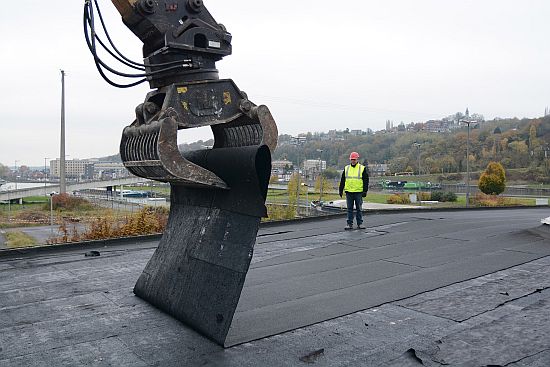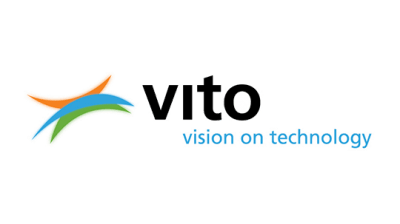Derbigum
Derbigum is the first company in the world offering an entirely plant-based roofing membrane
“Our roofing solutions reduce a building’s ecological footprint”
Koen Sneiders, recycling manager at Derbigum
|
The roof that absorbs CO2, an entirely plant-based roofing membrane or roofing made of recycled materials: the Belgian company Derbigum is investing heavily in sustainable roofing solutions. “Our aim is to close the circuit of materials and get rid of hazardous substances.”
Derbigum was founded as a family SME in 1932 and focused on making roofs watertight. Meanwhile, the company has expanded its expertise to other aspects in the building process, however, the production of roofing materials remains their key focus. “In our sector, recycling can make a real difference”, claims Koen Sneiders, recycling manager at Derbigum. “It benefits the climate and makes us less dependent on the volatile petroleum industry. After all, the most important raw material used in normal roof membranes remains bitumen.” Sustainable production line As long ago as 1999, Derbigum was already using a processing machine in its factory in Perwijs (Walloon-Brabant), which returned the production waste directly to the production process. Koen Sneiders: “What began as a cost-saving measure was transformed, in 2009, into an entirely sustainable production line: 25 to 30 per cent of our NT range (New Technology) is made of recycled materials. This might be production waste, but also waste cuts from roof layers, as well as post-consumer material. The latter is collected in constant dialogue with the demolition sector. We focus on industrial sites, as we require large quantities to guarantee a consistent quality.” The NT roofing membranes themselves are 100 per cent recyclable. “The customer is able to make an agreement with Derbigum at the time the roof is laid. This guarantees that we will come and recover NT roofing membranes at the end of their useful life.” Energy-conscious building In 2010, Derbigum launched the world-exclusive Derbipure. The first entirely plant-based roofing membrane based on oils and resin, and a fully-fledged alternative to roofing membranes made of bitumen. “Our range also includes roofing membranes that reduce a building’s energy consumption or help to capture rainwater. Our white acrylic coatings reflect up to 81 per cent of the sun’s rays, meaning that less energy is required to keep the building cool. We have also developed a roofing membrane with a layer of olivine granulate (note from the editor: a mineral) that absorbs CO2 from the atmosphere.”
De prijs van innovatie In België reageert de dakdekkerssector nog terughoudend op de innovatieve oplossingen van Derbigum. Nederland en Scandinavië vormen de voornaamste afzetmarkten. "Onze ecologische producten voldoen aan dezelfde normen als reguliere dakbanen. Maar voor klanten is er geen direct economisch voordeel. Ze moeten vanuit een ecologische overtuiging kiezen voor Derbipure of het NT-assortiment. Vaak verwachten klanten dat gerecycleerde producten goedkoper zijn. Maar innovatie kost geld en dat vertaalt zich in de prijs. Je mag daar als fabrikant niet aan toegeven: dan bevestig je het beeld dat recyclage minderwaardige producten oplevert, terwijl het tegendeel waar is." The price of innovation Belgium’s roofing industry still remains cautious about the innovative solutions from Derbigum. The Netherlands and Scandinavia are currently the main markets. “Our ecological products meet all the same requirements as standard roofing membranes. However, there is no direct financial advantage for customers. They need to choose Derbipure or products from the NT range because of their ecological convictions. Customers often expect recycled products to be cheaper. However, innovation costs money and that is reflected in the price. Manufacturers should not give in: this just confirms the notion that recycling results in less high-quality products, when in fact the opposite is true.” |
Derbigum
Sectors Construction ›


